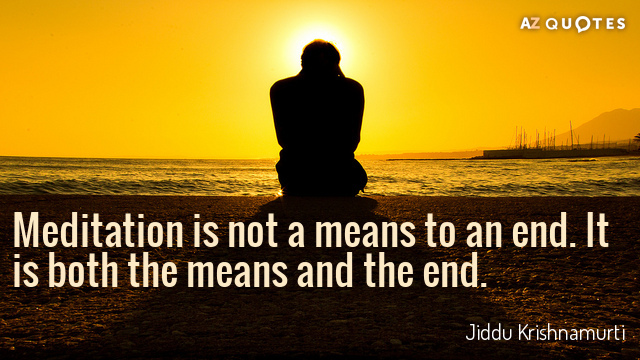JUPITERASC
Well-known member
Looking from ultimate level:
1. We develop attachment to those who help us a little and see them as good people.
Those who harm us a little we loathe and see as bad people.
We regard them as being good and bad from their own side.
This state of mind is not realistic.
If it were, the Buddha would see things that way, but this is not the case.
If one person on one side of the Buddha anoints him with fragrant oil
and another person on the other side hacks at him with a knife
the Buddha does not regard one as good and the other as bad
becoming attached to one and disliking the other.
If there were a real difference between the two people, the Buddha with his clear-sighted wisdom would see it.
However, he does not see one person as inherently good and the other as inherently bad.
2. People appear nice and horrible to us from their own side
but that is not how they actually exist.
The appearance of someone as good or bad is a dependent arising
an event that comes about in dependence upon the gathering together
of particular causes and conditions, such as a little help or harm.
It is thus something changeable by nature.
It is not fixed because friend and enemy are not friend and enemy from their own side.
We can see in our lives that as conditions change
people easily change roles in relationship to us.
Thus, they are not permanently our friend, enemy, or stranger.
3. Similarly, we think
"This person is my enemy
and this is my friend"
as if they were always, permanently, and irrevocably that way.
In fact, friend and enemy are relative
like saying "this mountain" and "that mountain."
We call the mountain we stand on now "this" mountain
and the one on the other side "that" mountain.
But if we crossed over to "that" mountain, it would become "this" mountain
and "this" mountain would become "that" mountain.
Thus, "this mountain" and "that mountain" do not exist from their own side.
They are relative. It is similar with those whom we call friend and enemy.
These terms are relative and changeable.
No one is inherently a friend and worthy of attachment
no one is inherently disagreeable and worthy of aversion.
In brief, the last three reasons show that friend and enemy do not inherently exist.
First, they do not exist that way from their own side
because if they did, the Buddha would see it like this, but the Buddha doesn't.
Second, they are not permanent because they change.
Third, they are not absolute categories
because the designations "friend" and "enemy" are relative
The meaning of equalizing and exchanging self and others
TRANSFORMING ADVERSITY INTO JOY AND COURAGE
An Explanation of the Thirty-seven Practices of Bodhisattvas
by Geshe Jampa Tegchok - Snow Lion Publications
1. We develop attachment to those who help us a little and see them as good people.
Those who harm us a little we loathe and see as bad people.
We regard them as being good and bad from their own side.
This state of mind is not realistic.
If it were, the Buddha would see things that way, but this is not the case.
If one person on one side of the Buddha anoints him with fragrant oil
and another person on the other side hacks at him with a knife
the Buddha does not regard one as good and the other as bad
becoming attached to one and disliking the other.
If there were a real difference between the two people, the Buddha with his clear-sighted wisdom would see it.
However, he does not see one person as inherently good and the other as inherently bad.
2. People appear nice and horrible to us from their own side
but that is not how they actually exist.
The appearance of someone as good or bad is a dependent arising
an event that comes about in dependence upon the gathering together
of particular causes and conditions, such as a little help or harm.
It is thus something changeable by nature.
It is not fixed because friend and enemy are not friend and enemy from their own side.
We can see in our lives that as conditions change
people easily change roles in relationship to us.
Thus, they are not permanently our friend, enemy, or stranger.
3. Similarly, we think
"This person is my enemy
and this is my friend"
as if they were always, permanently, and irrevocably that way.
In fact, friend and enemy are relative
like saying "this mountain" and "that mountain."
We call the mountain we stand on now "this" mountain
and the one on the other side "that" mountain.
But if we crossed over to "that" mountain, it would become "this" mountain
and "this" mountain would become "that" mountain.
Thus, "this mountain" and "that mountain" do not exist from their own side.
They are relative. It is similar with those whom we call friend and enemy.
These terms are relative and changeable.
No one is inherently a friend and worthy of attachment
no one is inherently disagreeable and worthy of aversion.
In brief, the last three reasons show that friend and enemy do not inherently exist.
First, they do not exist that way from their own side
because if they did, the Buddha would see it like this, but the Buddha doesn't.
Second, they are not permanent because they change.
Third, they are not absolute categories
because the designations "friend" and "enemy" are relative

The meaning of equalizing and exchanging self and others
TRANSFORMING ADVERSITY INTO JOY AND COURAGE
An Explanation of the Thirty-seven Practices of Bodhisattvas
by Geshe Jampa Tegchok - Snow Lion Publications













